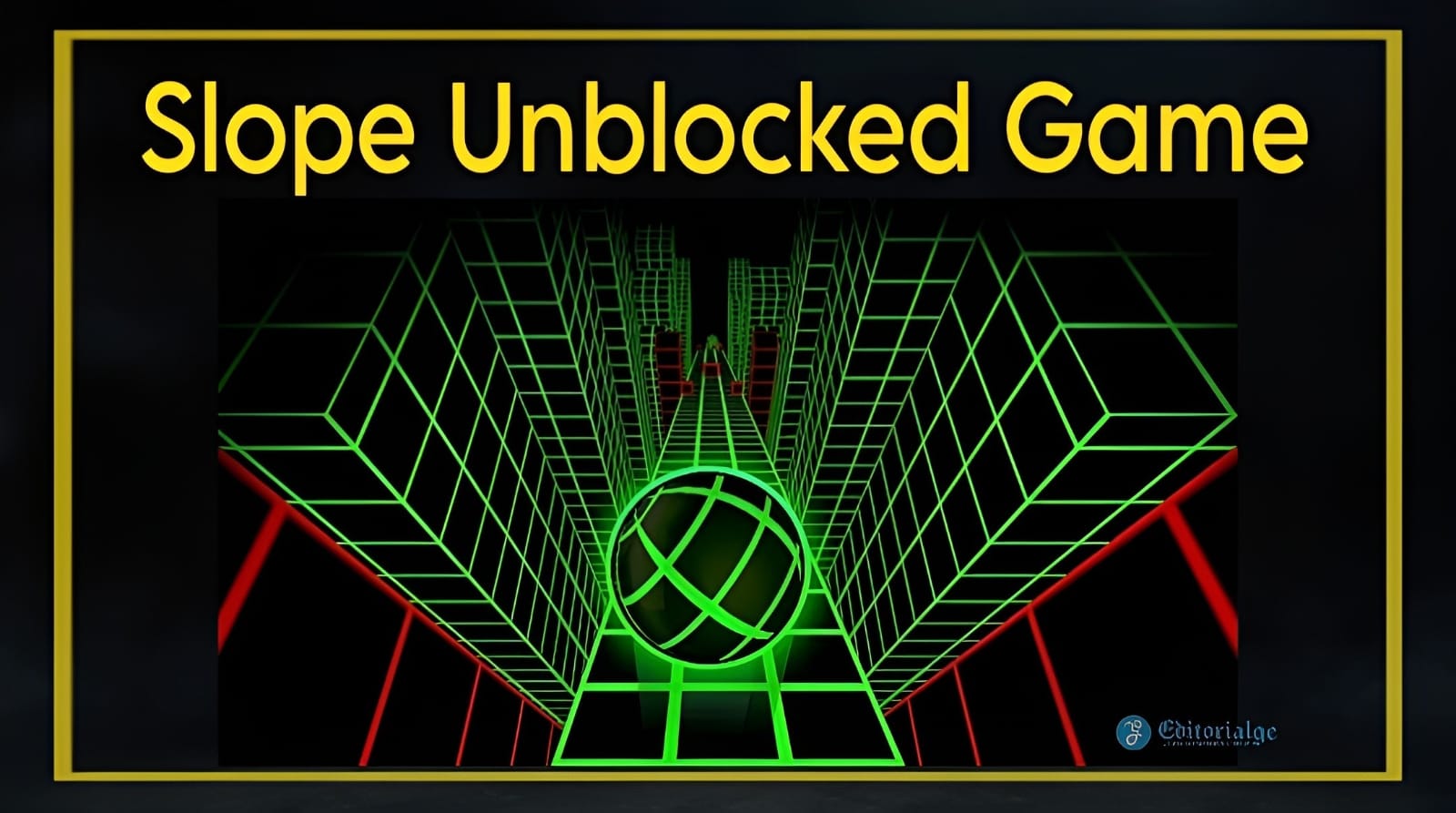Play Slope Unblocked Now! No Download Needed
Is the world of online gaming truly a level playing field? The increasing prevalence of "slope-unblocked" versions of popular games highlights a growing tension between accessibility and the intended design of digital entertainment. This seemingly simple phrase unlocks a complex debate concerning copyright, creative control, and the evolving landscape of how we consume and experience games.
The term "slope-unblocked," often associated with a particular, endlessly-running 3D game, acts as a signal, a shortcut for individuals seeking ways to bypass restrictions typically put in place by schools, workplaces, or other environments. These versions, by their very nature, are modifications. They circumvent filters and firewalls, allowing access to games that might otherwise be unavailable. While the allure of immediate gratification and uninhibited play is undeniable, the underlying implications of this widespread practice deserve careful consideration.
Consider the perspective of the game developers. Their creative vision, their painstakingly crafted levels and challenges, are often subtly altered, even unintentionally, through these unblocked versions. The original intent can be diluted, gameplay mechanics potentially exploited, and the carefully balanced difficulty curves rendered irrelevant. Further complications arise when these unblocked versions are hosted on sites that may generate revenue through advertising, potentially diverting income away from the creators of the original game. This raises ethical questions about respecting intellectual property and the sustainability of the game development ecosystem itself.
On the other hand, the popularity of "slope-unblocked" speaks to a genuine desire for access. It speaks to the enjoyment users derive from these games, particularly the unique thrill of overcoming obstacles and achieving high scores. For many, these games provide a valuable form of entertainment and a welcome distraction. The desire to play isnt inherently malicious; rather, it's a simple expression of interest in a form of leisure. Additionally, "slope-unblocked" often caters to communities, fostering a sense of shared experience and competition amongst users who might otherwise not have access to these forms of entertainment.
The situation is further complicated by the technical landscape. The internet, by design, is a network built on interconnectedness and user freedom. Restricting access completely, even if desired, can be a frustrating and often ineffective exercise. Firewalls and filters, while designed to protect and control, can become obstacles to the flow of information and activity. Many school and workplace systems are designed to limit distracting websites, making it necessary for users to seek alternatives to get their gaming fix. The very nature of the internet makes it difficult to permanently block access, with new loopholes and workarounds consistently emerging.
So what are the consequences of this phenomenon? One primary area of concern lies within the context of schools. While games can promote strategic thinking, problem-solving, and hand-eye coordination, the distraction that games present is still a large problem in education. Unblocked versions, therefore, can become a distraction from educational objectives. However, in some cases, even unblocked games could be utilized to introduce certain aspects of coding and programming. The integration of gaming and educational tools is a growing area, and the potential to harness this interest in a constructive way remains an opportunity.
Another significant impact is felt by independent game developers. Many smaller developers are dependent on revenue from in-game purchases and advertising to continue their operations. The widespread use of "slope-unblocked" versions, which often bypass these revenue streams, can threaten their ability to create and sustain their projects. This can, in turn, reduce the diversity of available games and stifle innovation within the industry. Protecting the rights of the developers must remain paramount.
Ultimately, the "slope-unblocked" issue necessitates a nuanced approach. It demands a consideration of the motivations of the user, the rights of the developers, and the realities of the internet. While the legality and ethics of accessing or distributing these versions remain open to interpretation, the conversation itself is vital. Balancing the desire for accessibility with the need to protect intellectual property and sustain the creative ecosystem is a continuous challenge. A simple ban is never a practical long term solution, but a dialogue, where the interests of all stakeholders are recognized, provides the best chance of reaching a resolution that is both fair and future-proofed.
The question of "slope-unblocked" forces us to examine a fundamental shift in how we interact with digital entertainment. As the popularity of online gaming continues to grow, we can expect to see more of these types of situations arise. The evolution of this phenomenon, the creation of new tools, and the increasing sophistication of gaming experiences mean that these issues wont disappear. By keeping the conversation open and exploring different approaches to these questions, we can find sustainable solutions that benefit both game creators and those who enjoy them.
Here's a look at the potential implications, organized for a clearer understanding:
| Aspect | Impact | Considerations |
|---|---|---|
| Gameplay Experience | Potentially altered or simplified versions of the original game. May affect difficulty, features, and overall balance. | Developers should consider how their design choices influence the user experience. Should gameplay be open to adaptation? |
| Access and Accessibility | Provides access to games for those unable to play the official version due to restrictions. | Is accessibility a right or a privilege? How can games be designed for wider reach while still controlling the user experience? |
| Copyright and Intellectual Property | Challenges copyright enforcement and may infringe upon the rights of developers. | How can copyright be protected in the digital age? What constitutes fair use or acceptable modification? |
| Monetization | Bypasses revenue streams for game developers (ads, in-app purchases). | What is the ethical responsibility of users? How can revenue models be protected without hindering accessibility? |
| Security | Risk of malware or compromised game versions on unverified sites. | Users need to be more careful when downloading/playing these versions. Where can they verify that they are getting safe experiences? |
| Education | Potential for distraction in educational settings; also the opportunity to use games for learning/coding. | How can schools and teachers manage distractions? Can games be incorporated for learning or other purposes? |
| Community | Can foster a shared experience and social interaction, especially for those with limited access. | What is the positive impact of games and unblocked versions on building communities? |
This table offers a snapshot of the many sides of the "slope-unblocked" conversation. Understanding the different areas of impact is crucial to formulate well-rounded solutions that safeguard both the creators and the players.
The issue of "slope-unblocked" games extends beyond merely the enjoyment of a simple game. It's a microcosm of the larger digital struggle between creative ownership, open access, and the monetization of creative works. This issue reflects the challenges inherent in maintaining control in the digital space. The ease with which content can be copied, modified, and distributed highlights the importance of proactive strategies for copyright protection and content moderation.
Developers are increasingly turning to various methods to address these issues. Some implement Digital Rights Management (DRM) to limit unauthorized access, though the efficacy of these systems is a constant point of debate. Others focus on developing engaging experiences that are difficult to replicate in unauthorized versions. This is often accomplished through the addition of server-side functionality, where essential game mechanics are managed and stored to prevent players from using unblocked versions. This approach can also enhance the quality of multiplayer experiences.
Furthermore, some creators have embraced the challenges by providing their games through multiple channels, including free-to-play models or ad-supported versions on multiple platforms. They provide different methods for players to gain access. They accept that free versions exist and focus on providing high-quality experiences to attract players to support their games through legal channels. While it is true that a completely free game is less attractive than one with premium features, it is also true that developers are often willing to give it a try.
The debate around slope-unblocked also highlights the shifting landscape of the internet and how it is used. The accessibility of these games is not restricted to schools. Many workers find the games beneficial during their work time, and are able to use these unblocked versions to de-stress or keep from getting bored, and the games may potentially increase their overall productivity.
Additionally, the ongoing evolution of internet security practices is another important factor in this discussion. As schools and workplaces bolster their security protocols, the creators of "slope-unblocked" games and the sites that host them will need to find increasingly sophisticated ways to circumvent these restrictions. This "arms race" between access and control is a recurring theme on the internet, and understanding these evolving dynamics is essential.
For users, the situation demands greater caution. Downloading and playing games from unverified sources can expose devices to malware, and in the worst cases can open up access to your personal information. Users must learn how to discern credible sources and be willing to weigh the risks and benefits of accessing unblocked games. Educating users about the dangers of unverified online content is a crucial step in promoting online safety.
Considering the legal framework around copyright and intellectual property, the act of creating and distributing slope-unblocked versions often treads a fine line. While there is no simple answer, it is essential to understand that the rights of the original creators are protected by law. Those who modify and redistribute games without permission could face legal consequences. It's imperative that users are educated about the legal implications of their actions.
In this era of rapid technological advancements, the issue of "slope-unblocked" represents a wider theme of the challenges and opportunities that arise when the digital world and the physical world intersect. The question of access, ownership, and control will continue to challenge us for years to come. By exploring the complex facets of "slope-unblocked," we learn more about our own relationship with technology, and how it shapes our entertainment habits.
Ultimately, the "slope-unblocked" issue is a call for balance, a call for responsible digital citizenship. It's not simply a question of right and wrong, but a complex equation involving access, creativity, and the evolving dynamics of the internet. By engaging in an informed discussion, we have the opportunity to mold a future where both innovation and accessibility flourish, and where the rights of all stakeholders are respected.
The conversation around "slope-unblocked" underscores the need for a comprehensive approach, involving developers, educators, policymakers, and users. The goal is to foster an environment that promotes both creative expression and ethical digital practices. It demands a deeper look at how we balance user experience with the rights of creators, and how we can shape a future where the enjoyment of digital entertainment and respect for intellectual property can coexist.


